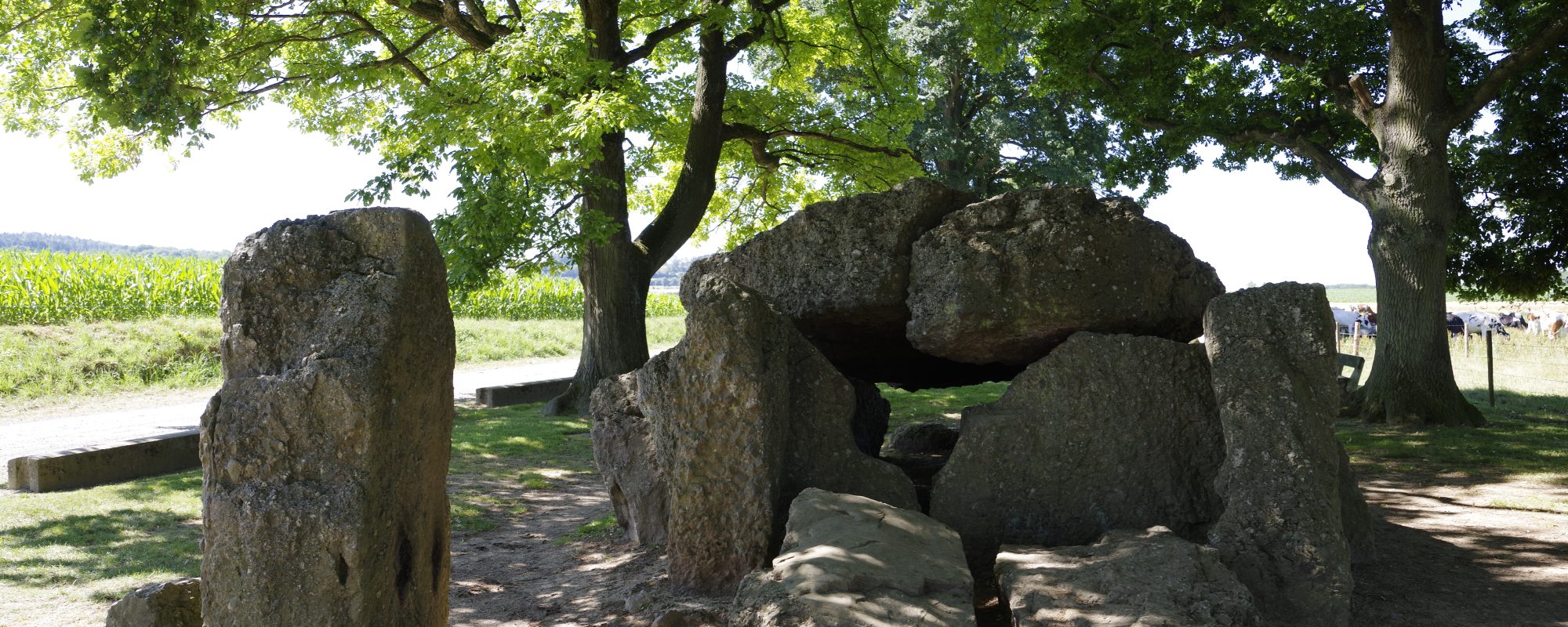The megalithic site of Wéris
A major megalithic site where the "elements" are aligned over a length of nearly 8 km and a width of 300 m - Exceptional heritage of Wallonia

A major megalithic site where the "elements" are aligned over a length of nearly 8 km and a width of 300 m - Exceptional heritage of Wallonia
On the Calestienne plateau which stretches between the Famenne and the Ardenne, the megalithic field of Wéris forms an alignment of about 8 km long and 300 m wide.
Classified as an exceptional heritage site in Wallonia, it consists of two “covered alley” type dolmens and five sites of menhirs made of pudding stone (Oppagne, Danthine, Morville, Heyd and Ozo).
The Dolmens (“stone tables”) are collective tombs in which the dead were laid.
As for the Menhirs (“long stones”), they may have had several functions: boundary markers or signposts, commemorative steles…
At Wéris, their construction dates from the end of the Neolithic period (around 3,000-2,800 BC), a period of prehistory that saw man become sedentary and practise animal husbandry and agriculture.
It is not clear what significance this alignment has. Perhaps we should associate these monuments with the natural rocks on the hillside (such as the “Haina Stone”). As a sort of visual marker in the landscape, did the ensemble form a “calendar” linked to the course of the sun during the periods of the equinoxes and solstices?
For more information, see our heritage sheet.
CHAMP MEGALITHIQUE
Rue des dolmens, 45 – 6940 Wéris
MAISON DU TOURISME FAMENNE-ARDENNE OURTHE & LESSE
Place de l’étang,15 – 6900 Marche-en-Famenne
+32(0)84/34 53 27
OFFICE COMMUNAL DU TOURISME ET SYNDICAT D’INITIATIVE DE DURBUY
Place aux Foires, 25 – 6940 Durbuy
+32(0)86/66 01 80
+32(0)86/21 24 28
The association Les Plus Beaux Villages de Wallonie (The Most Beautiful Villages of Wallonia) oversees a network of 32 villages, bearers of a strong territorial identity and reflecting traditional architecture. It is committed to promoting the rural, cultural and natural heritage of Wallonia and is a part of the development of local and responsible tourism.
More information